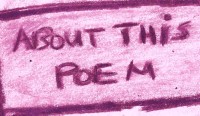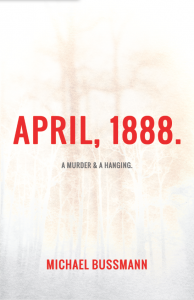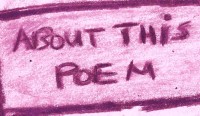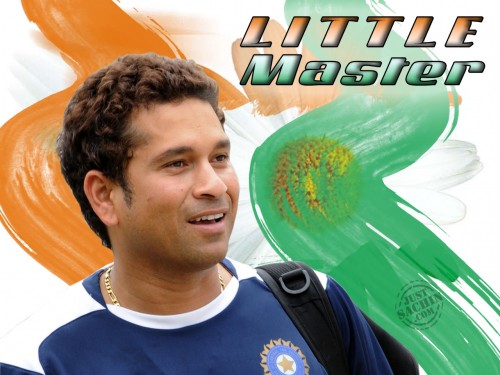Mass Effect and The Self-Imposed Strictures of Interactive Storytelling

In an era of broad canonical redefinition, when more and more previously marginalized forms, from comic books to slash fiction, are receiving the literary attention they have always deserved, one storytelling medium remains stubbornly difficult for anyone, even its devotees, to take too seriously. That medium is gaming, and I’m afraid that it’s all my fault.
I am a gamer. I have, admittedly, much more passion reserved for gaming’s potential, its Platonic ideal, than for any of its present, more or less imperfect incarnations. Sadly, my attitude toward such an ideal waxes cynical of late. Ten years ago, electronic gaming was just starting to emerge from its reflex-test swaddling clothes and make faltering baby steps in a dozen directions exciting new directions, each a distant promise of something previously unseen in the world of art and literature. Today, the bloated man-child of mainstream gaming has all but sunk into a quagmire of the same stories repeated like a tattoo, with more flash and less substance as each year passes, as the intersection of “game” and “story” becomes increasingly cemented in a model that leaves little room for the kind of progressive storytelling originally promised. Its syntax, the language of player interaction in which its message is couched, has become lazy and predictable. The once promising child’s development may be permanently arrested, and I, as a gamer, am to blame.
In a McCluhanian nod, that syntax, rather than the literal story being told, is the true carrier of gaming’s message. It’s the push-pull between the intentionality of the game designer, as expressed in the structure (digital or physical) presented to the player as “game,” and the player’s own investment and empowerment within the narrative. It is, in many ways, a revival of the call-and-response communal storytelling of folklore and early theater, except that, in a gleefully postmodern twist, the storyteller hopped a jet out of town months before the audience even arrived. The “story” is the sealed and packaged structure left behind, its white spaces carefully measured, the player’s responses anticipated and, in many cases, artfully curtailed. The syntax encompasses both the (always limited) means by which the player is allowed to respond to the piece—say, by rotating the camera, jumping, pulling levers, pushing boxes, et cetera—and the degree to which the storyteller has correctly anticipated, and provided appropriate responses to, the player’s interactions. Games that employ the same syntax cannot help but deliver the same message, over and over, no matter what the “story” appears to be on the surface.
Critically, the syntax is always imperfect (otherwise, the game would be a perfect simulation of real life, which would negate the game designer’s authorial intentionality and, in any case, be unplayably boring). A great deal of gaming’s storytelling potential lies in the allowed-but-unanticipated interactions, the frontier spaces wherein the player becomes more than a marionette acting out canned responses and takes on a more active, improvisational role. Not that this always occurs within the game itself.

Theoretically, games could be as broad in their form and intention as the written word. However, the vast majority of mainstream games occupy a stiflingly narrow syntactical space, forcing the player to repeat the same deeply worn gestures ad infinitum. First- and third-person shooting games—often, the only difference is whether the protagonist’s legs are visible—dominate the home console market, with action-adventure titles in the style of Devil May Cry and God of War picking up most of the slack. On computers, the preferences differ, but the tropes are no less ingrained. With 90%-plus of a game’s syntax devoted to the art of war, you can imagine the narrative range allowed.
The gating factors of syntax aside, there is a deeper problem preventing mainstream gaming from establishing itself firmly in the realm of serious storytelling: the interests of gamers, even those who look toward the horizon, are simply counterproductive to good storytelling. Put another way, people don’t play games, even story-driven games, with the same expectations and motivations as they would read a book. Gaming attracts and rewards certain personality types and behaviors; in fact, it trains those behaviors, in a Pavlovian sense. Gamer’s want to win, they want to win completely, and the act of playing the game reinforces those desires and expectations.
When I play games, I want to talk to, collect, and do everything that the game allows. I am not a competitive person; rather, I’m driven by a desire to fully appreciate the game’s construction. If there are multiple endings, branching options, I want to see them all, and I want to see my time and effort rewarded. The problem is, these desires just don’t make for very interesting or effective stories; I am incapable of acting in my own best interests in this regard. Even those games that attempt to push the envelope ultimately have to succumb to the gamer’s demands, or they will not get played.
And worse, as a gamer, I do not actually want what I think I want. For the past decade, video game publishers have consistently pushed choice-driven storytelling as a key feature in their major releases, and it is clear from consumer response that this is something most gamers think they desire. From Fable to The Walking Dead, Deus Ex to Dishonored, the message is clear: gamers desperately want a part in the story being told; they want to feel as though their interactions matter.

EA and Bioware’s Mass Effect series lives up to this promise better than most. From the first release of this space epic trilogy in 2007, the series has placed an emphasis, almost to excess, on player-defined storytelling that is both novelistic in its scope and cinematic in its execution. The series offers a roughly even split between kinetic over-the-shoulder shooting and loquacious story content, during which the player is bombarded by constant dialogue choices utilizing a “conversation wheel,” via which players can select the tack, though not the actual content, of their in-game avatar Commander Shepard’s responses.
………Alt Lit set for Huge International BOOST……..
1) When Sachin Tendulkar, famous cricketer, walked back off the Wankhede field in Mumbai after having accumulated nearly 16,000 Test Runs in exactly 24 years at the highest international level (a career surpassed in excellence only, perhaps, by Sir Donald Bradman) he proclaimed “I am ready to die a violent death.”
Yes, it seems the world’s most famous cricketer (a virtual God in India and the rest of the subcontinent) is headed for new glories, laurels and great, foaming spikes of URL fame in the crazy, wide-open world of Alt Lit.
2) “Yes,” Sachin continued, “I plan on running amuck in the woods muttering glorious Carpe Diem extravagances”— whereupon Steve Roggenbuck leaped out of the Wankhede stands and hoisted Sachin up on to his shoulders and started chanting “Boost! Boost! Boost!” and the whole crowd, 40,000 strong, joined in immediately, voraciously chanting “Boost, Sachin, Boost” and Eternal Lief seemed all-too possible. Beautiful. Exquisite. Here. Now. Now.
3) “Will you be going to Brooklyn?” READ MORE >
– – watch this imagining it’s Janey Smith!!
– – watch this imagining it’s Johannes Göransson!!
– – watch this imagining it’s Alt Lit in toto!!
(just kidding… just kidding)
POEM-A-DAY from THE ACADEMY OF AMERICAN LUNATICS (#4)

Sandra Simonds lives a pretty boring life in Tallahassee, Florida. She works as a professor in Thomasville, Georgia. She is always tired. Sometimes she parks her car in random parking lots and just sits there and listens to music.
by Sandra Simonds
He doesn’t love you It’s just a way for him
to feel less lonely in his love for me Hope you got some
money to take care of your AIDS and keep
your ignorant mouth shut Hope that you end up
committing suicide If you care
about your life at all you will SHUT THE
FUCK UP WHORE You greasy slimy jstinky
mentally Jewish nasty whore Kill yourself
cunt I will FIND YOU (Namaste) If you care about
your life at all (Namaste) you will SHUT THE
FUCK UP WHORE I am tall witty thin blonde Sorry
If I see one FUCKING THING about me anywhere I am coming
to your house Men of power and influence have been
and are attracted to me You’re writing is
GARBAGE Yes people in the world
Move They
Change You moron you can’t even pronounce “koan”
Sometimes even beautiful poets who come
from money such as myself fall in love
with poor white trash alcoholics and go the south
and live with them a few years Enjoy the charity people
who want their dicks sucked Women get
divorced It is
awful DOG don’t give your kids AIDS
You should commit suicide Believe it! I’m rooting
for you You only had them
so you could be a “mommy poet” (Namaste)
 In some sense, this is a conceptual piece of writing in that it takes verbatim language delivered in one context (the stalker to me) and subverts it by delivering it back (me to the world) in an entirely different context/ new audience. It moves from the private (email) to the public (website) and in this sense it moves from the relationship of abuse (me and the stalker) to the relationship of reality/ sympathy and understanding (me and my other social relations). I would have never dreamed that I would write this sort of poem a year ago, but after having been stalked and harassed by this person for so long, after having called the police, after having ignored the stalker and fought back, I felt like writing the poem was my last recourse.
In some sense, this is a conceptual piece of writing in that it takes verbatim language delivered in one context (the stalker to me) and subverts it by delivering it back (me to the world) in an entirely different context/ new audience. It moves from the private (email) to the public (website) and in this sense it moves from the relationship of abuse (me and the stalker) to the relationship of reality/ sympathy and understanding (me and my other social relations). I would have never dreamed that I would write this sort of poem a year ago, but after having been stalked and harassed by this person for so long, after having called the police, after having ignored the stalker and fought back, I felt like writing the poem was my last recourse.
![]()
note: I’ve started this feature up as a kind of homage and alternative (a companion series, if you will) to the incredible work Alex Dimitrov and the rest of the team at the The Academy of American Poets are doing. I mean it’s astonishing how they are able to get masterpieces of such stature out to the masses on an almost daily basis. But, some poems, though formidable in their own right, aren’t quite right for that pantheon. And, so I’m planning on bridging the gap. A kind of complementary series. Enjoy!
November 13th, 2013 / 9:00 am
Michael Bussmann’s April 1988. A Murder & A Hanging
 April 1988. A Murder & A Hanging.
April 1988. A Murder & A Hanging.
by Michael Bussmann
Patient Sounds, PSS004, February 2013
14 pages / $12 Buy from Patient Sounds
Only one chapbook among my small library of codices made the journey with me this summer from my home in North Carolina to New Haven, where I’ll live for perhaps only enough time to make it a home. The postmark on the miniature manila envelope housing the chapbook dates the mailing for February 11, 2013, and upon my arrival to my new dwelling place in August, I had yet to pinch the tiny metal wings to open the package. Six weeks of seminary soon handed me a divine urging for more verse, and because I had recently overdosed on Wiman in preparation for sharing the same building as the man, I opened the envelope waiting on top of My Bright Abyss. Shipping tape covered those metal wings, so I ripped it open with my teeth.
I wish I hadn’t waited so long to travel back to April, 1988. A Murder & A Hanging (Patient Sounds, 2012). Michael Bussmann, one of two poet laureates of Fort Collins, Co., during the year of the collection’s printing, curates his first chapbook under a theme of “hyper-local horror poetry.” Specifically, he tells the story of a real murder, or rather murders, in his small Colorado town using seven poems. Bussmann first heard the tale (likely over beers since he works for the brewery that now makes the town famous) from a buddy, and the swiftness of death from life has haunted him since.
Bussmann sets the stage in his introductory note:
With “this fair town,” Bussmann shows, not tells, of his intimacy with Fort Collins, and it’s this relationship of place that contributes to the upsetting impact the horrid ballad has on him. “I have seen the sight [perhaps a purposeful homonym error] of the murder, and the hanging,” he notes. “And I have seen a piece of the rope they used to hang him.”
****
Bussmann begins his retelling with the site in “The Night Before” that ends with Eva’s ending the day of. He draws from his long nights in bars, on the job and other wise, in his deft description of James: “Long in night, he returns home too soon, / breath hot and rancid, stale from tall tales told.” Waking up in the morning after yelling, pints, and a forgotten teeth-brushing session bring me to James’s state. The taste is my mouth is a cross between peanut butter, sour patch kids, and old soy sauce.
It’s not long before Bussmann pairs these crude offensives with “beatings / and threats with knives” and Eva’s self-defense offense that starts as a thought and, like a buried lead, ends up a fatal action:
and packing the steamer trunk in your mind.
…
He sometimes lunched at home, but never
was the trunk packed. His eyes looked mean
and the knife came quickly. You pleaded, ran,
then cried murder (twice). Gertie wasn’t home
and for that you were grateful, and dead.
Bussmann’s spare but insightful use of a line break not solely before a transition shows he knows how to balladeer with suspenseful pauses (Compare, “He sometimes lunched at home, but never / was the trunk packed.” with “He sometimes lunched at home, / but never was the trunk packed.”) But I could have done without the concluding ode to Jerry Garcia. Instead of alarmed by a husband stabbing after his wife after she tries to leave an abusive relationship, I’m left thinking of “Sugar Magnolia” and Garcia’s missing middle finger.
Nonetheless, Bussmann soon recovers from a trite train of cocaine with the next two first-person poems from Eva and James, respectively. They further entrench the reader in the minds of two victims (everyone in this tale is a victim)—in a visceral, stream of consciousness manner. Quick, staccato pacing defines most of “Eva Howe, number one” as she looks down, unsure of what to do, where to go, and if she still lives:
in this dress’s duty completion.
It soaked through
as the slit gaped,
everything went red, wet,
the breech kept my bleedables
bleeding.
Bussmann’s alliteration of “breech,” “bleedables,” and “bleeding” drives how much “red, wet” flows around Eva after James stabs her. With later mentions of “muddy ways,” “arterial,” “deluge,” “pool was warming,” and “wet and dead,” Bussmann wants the reader soaked in the drained liquid of life—now unlife.
He shifts viewpoints to the killer in “James Howe,” who appears more occupied with thoughts of his bed than on his poor dead mate:
slightly acrid with this novel and bloody smell.
What has happened, just before now?
Beyond the footway’s darkness during lunchtime,
who’s to say … I found myself alone and dressed
in this bed, our (my) bed.
Bussmann’s parentheticals focus the reader’s attention on the newness of James’s situation. We discover the acute changes in James’s life at the same time he does. We don’t read after the fact; instead, we read with the fact.
November 11th, 2013 / 11:00 am
……..In the Dark like a Pig // Blah, Blah……..
***
part 1-– on my way back from Atlanta I was listening to Kylie Minogue and enjoying and cringing at her cruelty:
If love is really good
You just want more
Even if it throws you to the fire fire fire fireAll the lovers
That have gone before
They don’t compare to you
Don’t be running
Just give me a little bit more
They don’t compare
All the lovers
Basically what we have here is an insatiable sexual appetite inciting its lover the way a jockey uses a crop to get the last bit of zest out of its thundering horse. (or I dunno, I dunno, I mean I really like Kylie)
***
***
part 2— then, wrapped in the sky’s lust, I was thinking about Kill List which I think about often kinda the way I think about God a lot even though I’m a total atheist. I guess I mean I was thinking about all the fanatic reactions. All the foaming at the mouth. All the literal morons. Blah, blah, blah (yawn). . . .
. . .And then I thought perhaps I should write a Kiss List but before that even took root in my brain (shimmer, shimmer) I thought a Spank List might be better
CAConrad’s got a sweet ass
Greg Bem’s got a gorgeous ass
Reb Livingston’s got a sweet ass
Kris Hall’s got a sweet assJosef Kaplan’s got a sweet ass READ MORE >
November 10th, 2013 / 10:52 pm
The Anxiety of Influenza

“All bad poetry is sincere,” I got that from Harold Bloom, who got that from Oscar Wilde, who got that from his clever self, which hardly means that “all great poetry is insincere,” which again I’m getting from The Anxiety of Influence (1973), not the actual book but from Amazon’s virtual “look inside” feature, its animation, estimation, or interpretation of reading less affectionate than reading itself; that is, with a book, whose every page one holds the corner of, and hears going by, one by one, like shuffling a deck of cards in the slowest way possible. Bloom’s point is evident in his title, that the history of literature is ripping off others in the quest to be original; how this is both logically impossible yet always manifesting, albeit inadvertently through our “misreading” of the original. It is true when I let my subscription to The New Yorker expire, months later, at the magazine rack, I solemnly wonder about what I’m missing. I feel the same way passing bars at night, the brittle tinkering of glasses as a high-hat over the cacophonous rumble of voices. Like the red marker a teacher uses to point out what is wrong, the red squiggle of spellcheck is a kind of incision into the flesh of intention, if you were a half-blind James Joyce typing Finnegans Wake. More ominous is the green one, citing sentence fragments you didn’t know were fragmented. “Ignore all,” one may apply to grammar, dentist appointment reminders, and their social life. After watching The Road (2009), I told myself that a few weeks before the end of the world — faithful that Fox News or a crazy person would alert me — I would simply buy a can opener. As people ate each other, I’d have clam chowder and lychees. I didn’t read the book; that this is still considered blasphemy is redeeming: we still believe in the higher collaboration between sole words and imagination. Jonathan Franzen admits to buying copies of his books to give as presents to friends. At the register, he feels like he’s buying a Penthouse. “No, it’s not for my own use…” he says, or at least says he would say, I mean this is the problem with quoting a quote, to which the double quote shielding a single quote offers itself as a solution, like a large circle containing a smaller one — a bagel around a cup of coffee, inside a gurgling stomach — or a ventriloquist with his hand up someone. Everything that is wireless eventually concedes to a cord. Battery is not a crime. Nor is the stomach flu really influenza; it’s gastroenteritis, which hardly needs you to go viral. A man shot another man in Russia over an argument about Kant (the gun must have been a manual). Exactly how sour is cream cheese supposed to be? A man publishes a blog post in America and quickly walks to the bathroom. He has that not so refresh feeling all day. This was entirely made up.
POEM-A-DAY from THE ACADEMY OF AMERICAN LUNATICS (#3)
The Penis List

Jim Behrle was recently featured in “Kill List” as a comfortable poet. It’s possible that he is the least famous poet to earn such a distinction. He lives in Jersey City, NJ. By day he wears a green t-shirt and a nametag at a university bookstore, fetching textbooks for people with bright futures. He lives his broken dreams, a famous internet poetry troll, he’s probably better known for crap like “Best American Poetry: The Cartoon”, “Stone Cold Poetry Bitches” and “What the Hell is Up With Your Author Photo?” Behrle really has to get more of that Ruth Lilly money somehow.
by Jim Behrle
Jim Behrle has a half inch penis
The Kill List Kid has a three inch penis
Vanessa Place has a six inch penis
Billy Collins has a four inch penis
The Poetry Foundation has a $100 million penis
But Poetry Magazine has a two inch penis
Your iphone is a mile long penis that’s
Always secretly fucking you
When you look at your iphone think “penis”
Google is a huge penis sticking out of
Everything everywhere
And where ever you go you bump into them all
Poetry is a huge warm wonderful vagina
But everyone treats it like a narrow
Tight, unbreakable asshole that only
One penis at a time can fit in so
You’ve got to out-penis everyone else
Manhattan and Brooklyn take an inch off
America’s penis is old and gross
But we’re working on it now
The internet takes a half
Inch off your penis, snip, snip
Let’s just cut off all penises
Or yank them all out by the root
What will survive is love
And penises usually fuck that up, too
 Kafka once wrote “We are incapable of loving, only fear excites us.” Behrle quotes this all the time, it is the only thing he’s ever read from Kafka. And he wants to sound smart. This poem began as a long list of poets and their perceived penis lengths but once he got to the line about Billy Collins penis he lost his stomach and turned it into something else. Vanessa Place’s penis on the other hand kills poetry every night, aw yeah. Behrle. . .
Kafka once wrote “We are incapable of loving, only fear excites us.” Behrle quotes this all the time, it is the only thing he’s ever read from Kafka. And he wants to sound smart. This poem began as a long list of poets and their perceived penis lengths but once he got to the line about Billy Collins penis he lost his stomach and turned it into something else. Vanessa Place’s penis on the other hand kills poetry every night, aw yeah. Behrle. . .
note: I’ve started this feature up as a kind of homage and alternative (a companion series, if you will) to the incredible work Alex Dimitrov and the rest of the team at the The Academy of American Poets are doing. I mean it’s astonishing how they are able to get masterpieces of such stature out to the masses on an almost daily basis. But, some poems, though formidable in their own right, aren’t quite right for that pantheon. And, so I’m planning on bridging the gap. A kind of complementary series. Enjoy!
November 8th, 2013 / 9:24 am
Where I Learned To Escape
From ages 19 to 22 I was a lifeguard at the same tiny motel pool each summer in upstate New York. When the owner asked if I wanted to work full-time (this was at the start of the second year) I tried to suppress my enthusiasm because it was the easiest and most relaxing job ever. I said not to hire anyone else, I would run the pool full-time. I worked from sunrise to sunset seven days a week sitting under a blue umbrella at a plastic table with a tower of books. Occasionally, I interacted with the motel guests who viewed me the way inhabitants of Florida view snow.
POEM-A-DAY from THE ACADEMY OF AMERICAN LUNATICS (#2)
by Seth Abramson
This is a world where there are poets
There are poets everywhere, neo-formalists and conceptualists
There are poets on Twitter, there are poets in my bed.
There is one poet. She is my little one.
I talk to my little poet.
I give my little poet some Stevia but that does not satisfy her.
I tell her, ssh ssh, don’t growl little poet!
And she growls, oh boy does she growl!
And she wants something from me,
She wants my soul.
And finally giving in, I give her my gleaming soul
And as she eats my gleaming soul, I am one with her
And stare out her eyepits [sic] and I see nothing but white
And then I see nothing but fog and the white I had seen before was nothing
but fog
And there is nothing but fog out the eyes of poets
![]()
 When I was six or seven, I skinned my knee. It’s an experience that’s never really left me. This is a poem about that. And the magic of poetry. It’s called “Ars Poetica,” which means “small gift” in Latin. This poem owes a significant debt to Dottie Lasky and also to the magic of poetry.
When I was six or seven, I skinned my knee. It’s an experience that’s never really left me. This is a poem about that. And the magic of poetry. It’s called “Ars Poetica,” which means “small gift” in Latin. This poem owes a significant debt to Dottie Lasky and also to the magic of poetry.
![]()
note: I’ve started this feature up as a kind of homage and alternative (a companion series, if you will) to the incredible work Alex Dimitrov and the rest of the team at the The Academy of American Poets are doing. I mean it’s astonishing how they are able to get masterpieces of such stature out to the masses on an almost daily basis. But, some poems, though formidable in their own right, aren’t quite right for that pantheon. And, so I’m planning on bridging the gap. A kind of complementary series. Enjoy!
November 4th, 2013 / 12:01 am











